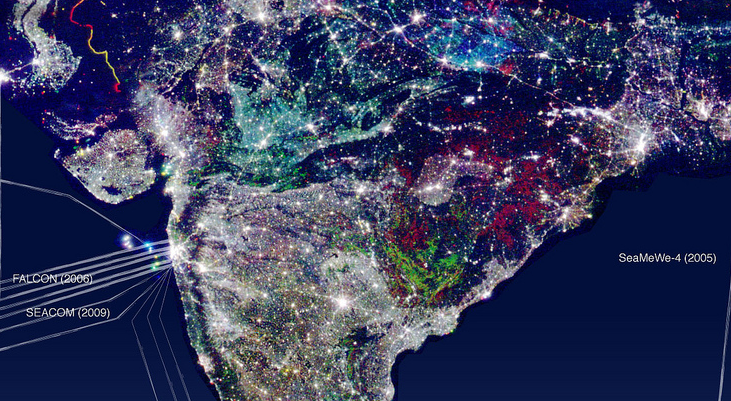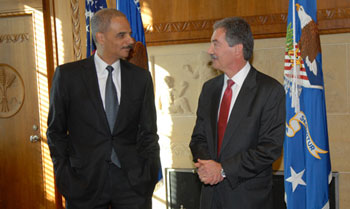Index relies entirely on the support of donors and readers to do its work.
Help us keep amplifying censored voices today.
The Indian government has been implementing a system to track and access calls, texts, and online activities. Mahima Kaul reports from Delhi that the Central Monitoring System (CMS) will be used by tax authorities and India’s National Investigation Authority to fight terror-related crimes.
Opposition to the surveillance system have now launched an online petition against it. Opponents say that while the system can be used to halt terror attacks and other violence, the government will primarily use it to police hate speech and criticism of authorities. They point to the government’s track record of arresting its online critics under Section 66A of the IT Act.

As with any conversation on state policing, cyber terrorism and warfare, there is extreme nervousness about institutional frameworks, as they should be built for protection of civil liberties as much as for national security. India’s CMS was established in the aftermath of the 2008 terrorist attacks in Mumbai, and according to information released at the time its purpose was to provide “central and regional databases to help central and state-level enforcement agencies intercept and monitor communications” as well as “direct electronic provisioning of target numbers by government agencies without any intervention from telecom service providers.” The government is spending about $75 million to build the system. The minister for information and technology, Milind Deora, reassured the parliament that the system would “lawfully intercept Internet and phone services.”
This claim needs to be further examined. In India, phone tapping laws come under Section 5(2) of the Indian Telegraph Act 1885. It was amended in 2007 after a high profile court case giving only the Union and State Home Secretaries the power to order interception of any messages. However, given that communication has increasingly shifted online — including phone calls made via Skype and other VoIP mediums — this communication now comes under Section 69 of the Information Technology (Amendment) Act, 2008.
Commentators have pointed out that the broad powers included in the act — any government official or policeman can listen to phone calls, emails, SMSs without a warrant — are in clear violation of Article 21 of the Indian constitution, which states that “no person shall be deprived of his life or personal liberty except according to procedure established by law.” This means that the government has the power to easily violate a citizen’s guaranteed right to privacy — in the name of security.
There’s also another pressing question to consider when examining the CMS: who will oversee the body to ensure that there are checks and balances? Intelligence agencies don’t come under parliamentary oversight as of yet in India. A bill entitled Intelligence Services (Powers and Regulation) Bill, introduced in parliament in 2011 has been shelved by the Prime Minister, with the promise that a law would be formulated soon.
What seems to be a plausible way forward, given that India is building online surveillance mechanisms, is a valid legal framework for bodies like the CMS. The challenge is to ensure the citizen’s right to privacy as enshrined by the constitution is not trampled upon, and that accountability is built into these systems from the start.
AUSTRALIA
When does mission creep become censorship?
The sort of abuse of power we’re seeing out of ASIC is endemic to the regulatory state, argues Chris Berg. The Australian Securities and Investments Commission is completely out of control. (The Drum)
AZERBAIJAN
Azerbaijan accused of restricting freedom of expression online
A group of Azerbaijani youths met in Baku city centre and made a Harlem Shake video, the dance that has become something off an online sensation in recent months. This video was uploaded in February and seems pretty harmless, no different from all the others doing the rounds on the web, and yet Ilkin Rustemzade may well go to prison. The opposition activist was arrested and charged with hooliganism for making this video. (France 24)
CHINA
Messaging app Line prepares the groundwork for censoring politically sensitive phrases in China
Earlier this year, Tencent-owned WeChat, a mobile messaging app with more than 300 million users, came under fire for censoring ‘sensitive’ topics that its users were discussing. Now, Line, a rival app developed in Japan which has 150 million users, is the next in line to pal up to the Chinese government and restrict the use of certain phrases on its service. (The Next Web)
EGYPT
US urges Egypt gov’t to defend political speech
The Obama administration is calling on the Egyptian government to rein in prosecutions of political expression amid what it called a “growing trend” of efforts to punish and deter people from speaking their mind. (AP via Post Bulletin)
FRANCE
‘Day Of Nude On Facebook’: French Users Protest Censorship With Bare-Skinned Photos
“Day of Nude on Facebook” — a French protest aimed at challenging Facebook’s unnecessary censorship of photos — backfired when the social media site took down the event page and suspended the accounts of some involved in the online demonstration. (Huffington Post)
JORDAN
Jordan premier: Arab Spring forces governments to widen press freedoms
The Arab Spring uprisings that toppled four Arab leaders have forced Mideast governments to allow more freedom of expression and of the press, Jordan’s prime minister said Monday, but critics charged that Jordan itself is not doing enough. (Washington Post
NEPAL
Libel charge at SC against press council
A libel case has been filed at the Supreme Court (SC) against the tri-monthly newssheet Sanhita published by Press Council.
Journalist Roshan Puri, Govinda Devkota and advocate Shree Krishna Subedi moved the court accusing that an article titled ‘Dai, JayaNepal, Comrade Abhinandan’ published in the Chaitra issue of the newssheet has slandered the petitioners. (Kantipur)
TUNISIA
Tunisian feminist arrested for ‘provocative’ appearance in holy city
A Tunisian feminist who scandalized her country by posting topless photos of herself online has been arrested after allegedly sneaking into Tunisia’s holiest city disguised in a veil, then trying to get undressed during a protest. (Washington Post)
UGANDA
Monitor offices under police siege
Police officers Monday searched Monitor offices, claiming they were looking for the Gen David Sejusa’s letter. The police later shut down the newspaper’s printing press and its sister FM radio stations – KFM and Dembe FM.Time Check, 11:15am and three fully packed police patrol vans stop outside Monitor offices. (Daily Monitor)
UNITED STATES
Fox News responds to ‘chilling’ DOJ investigation
Fox News has responded to a Justice Department probe of reporter James Rosen, reported by the Washington Post, that involved tracking his movements, phone calls and e-mails. (Washington Post)
Is A Facebook ‘Like’ Protected Under The Right to Free Speech?
Six former sheriff’s department employees who said they were fired in 2009 for “Liking” their boss’ political rival on Facebook appeared in Virginia federal appeals court this past week. (Opposing Views)
Column: Forced union dues violate free speech
Just as the government cannot stop you from supporting a political candidate, it cannot make you pay to support a candidate. The First Amendment protects both the right to support political causes and the right to not support them. But in California, that right is denied to hundreds of thousands of public school teachers who currently must pay exorbitant fees to bankroll the agenda of powerful teachers’ unions. (USA Today)
Attorney: Evansville man’s Twitter messages are protected free speech
The attorney for an Evansville man accused of making threats on the social media outlet Twitter is arguing the remarks are free speech protected by the U.S. Constitution. (CourierPress)
Movie studios send fraudulent censorship demands over Pirate Bay documentary
You’ll remember last month’s news that Fox had sent fraudulent takedown notices regarding my novel Homeland. This is hardly an isolated incident: the studios routinely exhibit depraved indifference to the inaccuracies in their automated censorship threats to search engines and webhosts. (Boing Boing)
US Supreme Court Accepts Religion Case: Will Legislative Prayer Survive Religious Censorship?
The case out of New York presents an opportunity for the US Supreme Court to bring needed clarity to Establishment Clause jurisprudence. I hope they do so. We have witnessed a growing governmental hostility toward religious faith and expression in the public square. (Catholic Online)
Speaking for the first time since the Associated Press announced on May 13 that the United States Department of Justice had seized two months of phone records, Gary Pruitt, president of the AP, said in an interview that the Obama administration should “rein in that out-of-control investigation.”

Attorney General Eric Holder and Deputy Attorney General James Cole are under fire for a subpeona of Associated Press telephone records. (Photo: DOJ)
The DOJ action came after Congressional uproar over government leaks to the press. Deputy Attorney General James Cole authorized investigators to seek a subpeona for the office and personal lines — including mobiles — of AP reporters. The subpeona was carried out secretly and the AP was not given a chance to respond.
“They’ve been secretive, they’ve been overboard and abusive,” Pruitt said of the DOJ’s actions in an interview with the AP.
For its part, the DOJ has not explained why it seized the phone records, but the AP has suspected that the investigation stemmed from a May 2012 article about a foiled terrorist plot.
The former journalist asks not to use his real name. So I will call him Francisco. He had been at the height of his career in 2007, in the vibrant city of Torreon, in northern Mexico, when he received a call from an unknown man, Ana Arana reports.
The man said he wanted to drink “lemonade” with him, slang he knew drug traffickers used when they wanted to discuss something with journalists. The journalist drove to a meeting place outside the city. There he found other colleagues who had also been summoned. The man showed them a newspaper story. “Here you say we fled a scene,” he said angrily, “we never flee, we are not cowards, and you can’t use that word to describe our activities,” he emphasized, showing the story in a newspaper.
(more…)